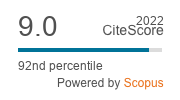The microbes in our gut can influence our weight by providing us with energy through the degradation of nondigestable carbohydrates and by affecting the cellular energy status of liver and muscle cells and the accumulation of lipids in adipose tissue. Thus, it is not surprising that in several studies the gastrointestinal microbiota of overweight and obese subjects has been found to differ from that of lean subjects. The initial findings linked obesity with proportionally decreased levels of the phylum Bacteroidetes and increased levels of the phylum Firmicutes. Later, several studies have assessed the association between overweight or obesity and the gastrointestinal microbiota, applying an array of molecular methods targeting the microbiota as a whole or specific bacterial groups or species within. However, at present it is difficult to draw conclusions on which of the observed microbiota alterations are relevant; essentially all of the bacterial groups that have been studied in more than one trial have given contradictory results in regard to their association with weight. Some of these discrepancies can result from methodological issues and some from the nature of the gastrointestinal microbiota, which is an extremely complex and dynamic microbial ecosystem with high subject specificity. In addition, selecting subjects purely based on weight may result in a largely heterogeneous group with several potentially confounding factors. While it may be premature to conclude which specific groups of bacteria are prominent in the intestinal tract of overweight and obese subjects, it appears clear that microbes contribute to weight gain and related health issues, such as the metabolic syndrome and type II diabetes. Therefore, it is important to continue to search for common microbial markers and predictors of obesity, and to study how these may be modulated with probiotics and prebiotics to promote health.
Intestinal microbiota and overweight
A. Lyra Related information
1 Danisco Sweeteners, Health and Nutrition, Sokeritehtaantie 20, 02460 Kantvik, Finland
, S. Lahtinen Related information1 Danisco Sweeteners, Health and Nutrition, Sokeritehtaantie 20, 02460 Kantvik, Finland
, K. Tiihonen Related information1 Danisco Sweeteners, Health and Nutrition, Sokeritehtaantie 20, 02460 Kantvik, Finland
, A. Ouwehand Related information1 Danisco Sweeteners, Health and Nutrition, Sokeritehtaantie 20, 02460 Kantvik, Finland
Beneficial Microbes: 1
(4)- Pages: 407 - 421
Published Online: December 14, 2010
Abstract
Keywords: obesity, intestinal bacteria, metabolic syndrome, type II diabetes, probiotics
2022 Journal Impact Factor
5.4
source: Journal Impact Factor 2023™ from Clarivate™

Institutional Offers
For institutional orders, please contact [email protected].
-
A.A. Hibberd, C.C. Yde, M.L. Ziegler, A.H. Honoré, M.T. Saarinen, S. Lahtinen, B. Stahl, H.M. Jensen and L.K. Stenman
-
E.E. Blaak, E.E. Canfora, S. Theis, G. Frost, A.K. Groen, G. Mithieux, A. Nauta, K. Scott, B. Stahl, J. van Harsselaar, R. van Tol, E.E. Vaughan and K. Verbeke
-
K. Venema, J. Verhoeven, C. Beckman and D. Keller
-
E. Arvidsson Nordström, C. Teixeira, C. Montelius, B. Jeppsson and N. Larsson
-
J.E. Haarhuis, A. Kardinaal and G.A.M. Kortman
-
E.E. Blaak, E.E. Canfora, S. Theis, G. Frost, A.K. Groen, G. Mithieux, A. Nauta, K. Scott, B. Stahl, J. van Harsselaar, R. van Tol, E.E. Vaughan and K. Verbeke
-
K. Lippert, L. Kedenko, L. Antonielli, I. Kedenko, C. Gemeier, M. Leitner, A. Kautzky-Willer, B. Paulweber and E. Hackl
-
K. Tsilingiri and M. Rescigno
-
M. Ozen and E.C. Dinleyici
-
Y. Kobayashi, T. Kuhara, M. Oki and J.-Z. Xiao



